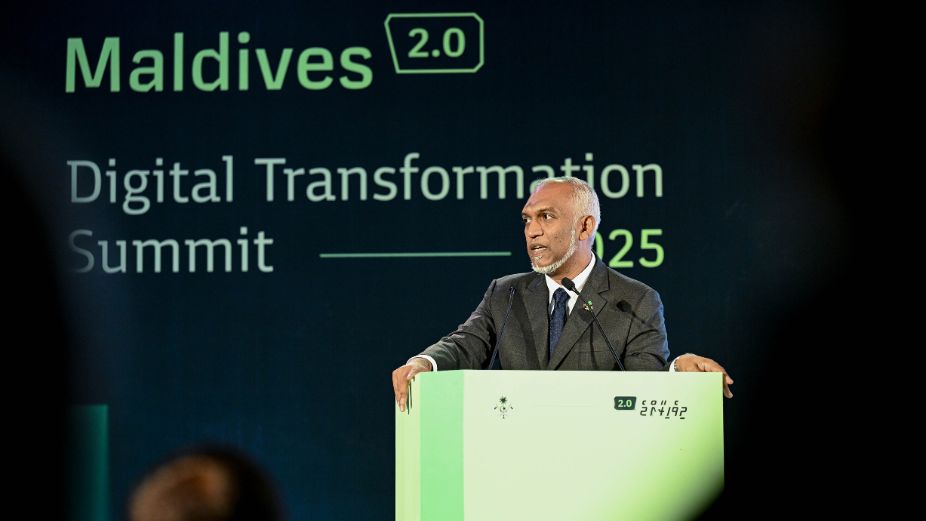
The Maldivian government has launched a new digital initiative, ‘Maldives 2.0’, which aims to overhaul the country’s public service delivery and governance through a comprehensive digital transformation. The plan was officially inaugurated at the Maldives 2.0 Digital Transformation Summit held in Malé on 9th May.
Designed to be implemented over the next three years, the project seeks to streamline government functions, reduce operational costs, and improve service efficiency by introducing interoperable systems across state institutions. Central to the strategy is the ambition to enable one-third of the civil service to work remotely by 2028. According to the government, this shift is expected to result in reduced congestion in Malé and environmental benefits from less vehicle use, while also improving flexibility in the public sector.
The project is being coordinated through a newly established Digital Transformation Council, chaired by the President. The council includes national experts and draws on international technical support, notably from Estonia, a country widely regarded as a leader in digital governance. The Estonian government has committed to supporting the Maldives with expertise and guidance throughout the process.
Maldives 2.0 also places a strong emphasis on transparency and accountability. The introduction of unified digital ID systems and upgraded cybersecurity infrastructure is expected to strengthen public trust in digital services and reduce opportunities for corruption. A centralised data approach is being developed to ensure that services are accessible, secure, and coordinated across agencies.
The digitalisation drive is part of a broader national development agenda that includes improving governance mechanisms and ensuring that progress is not measured solely by physical infrastructure. Officials say the reform is intended to support long-term sustainable development and better alignment between state functions and citizen needs.
Over 40,000 people are currently employed in the Maldivian civil service, making the government one of the largest employers in the country. With this context, the digital transition marks a significant shift in how public administration is expected to operate in the coming years.
The two-day summit will bring together senior government officials, digital experts, and international partners to map out the framework for the transformation and define the policies necessary for its execution. A legal framework to support these changes is also being developed.












